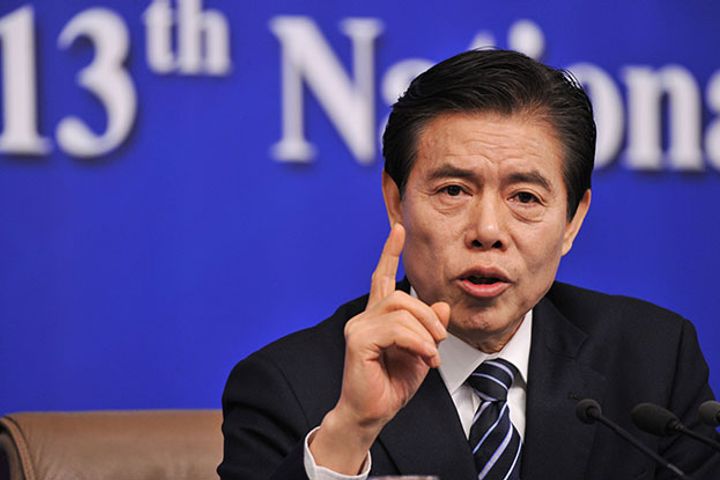 China Will Lower Duties on Autos, Consumer Goods
China Will Lower Duties on Autos, Consumer Goods(Yicai Global) March 12 -- China still has much scope to further develop its consumption, Zhong Shan, China's commerce minister, said yesterday. The country will greatly ease market access limits by dropping tariffs on such imports as vehicles and some consumer goods and further open service industries like telecom, healthcare, education, and elder care to enrich China's market supply and lower costs.
Zhong Shan and Zhong Shouwen, deputy commerce minister and deputy representative for international trade negotiation, and Qian Keming, deputy commerce minister made these remarks to domestic and international media this at a press briefing during China's annual national legislative meetings in Beijing, known as the Two Sessions.
Chinese residents' overseas shopping costs are around USD200 billion each year, for both luxury and daily-use goods. This figure shows the inadequate supply and higher prices of quality goods in China, Zhong said. In service consumption, China's weakness is clear in sectors like house cleaning, elder care, education and healthcare, for which the supply is also insufficient.
China needs to innovate new channels, expand consumption and increase effective supplies based on a changing social tableau. It must take three actions, i.e. to establish platforms, to further open, and to improve the environment, Zhong said.
Addressing the China-US trade deficit, Zhong pointed to certain differences in the two countries' respective trade statistics. The US government overvalued the trade deficit around 20 percent, per estimates by both countries' statisticians. The trade imbalance is structural. China logs surpluses in the goods trade, while the US registers surpluses in services, and so trade competitiveness is competitiveness among industries in his view. US controls on high-tech exports to China also widen the trade gap. The deficit would fall around 35 percent if the US eases its control over these exports, a US research institution reported.
The two countries will hold further talks on bilateral trade, he added. China currently slaps a 25 percent duty on imported cars. The US rate, by contrast, is 2.5 percent, news portal CNBC.com reported March 8. "Despite import tariffs being greatly slashed over the past several years, the 17 percent value-added tax remains intact," said Zhao Yang, chief China economist at Japanese financial services group Nomura, as the South China Morning post reported Nov. 24.